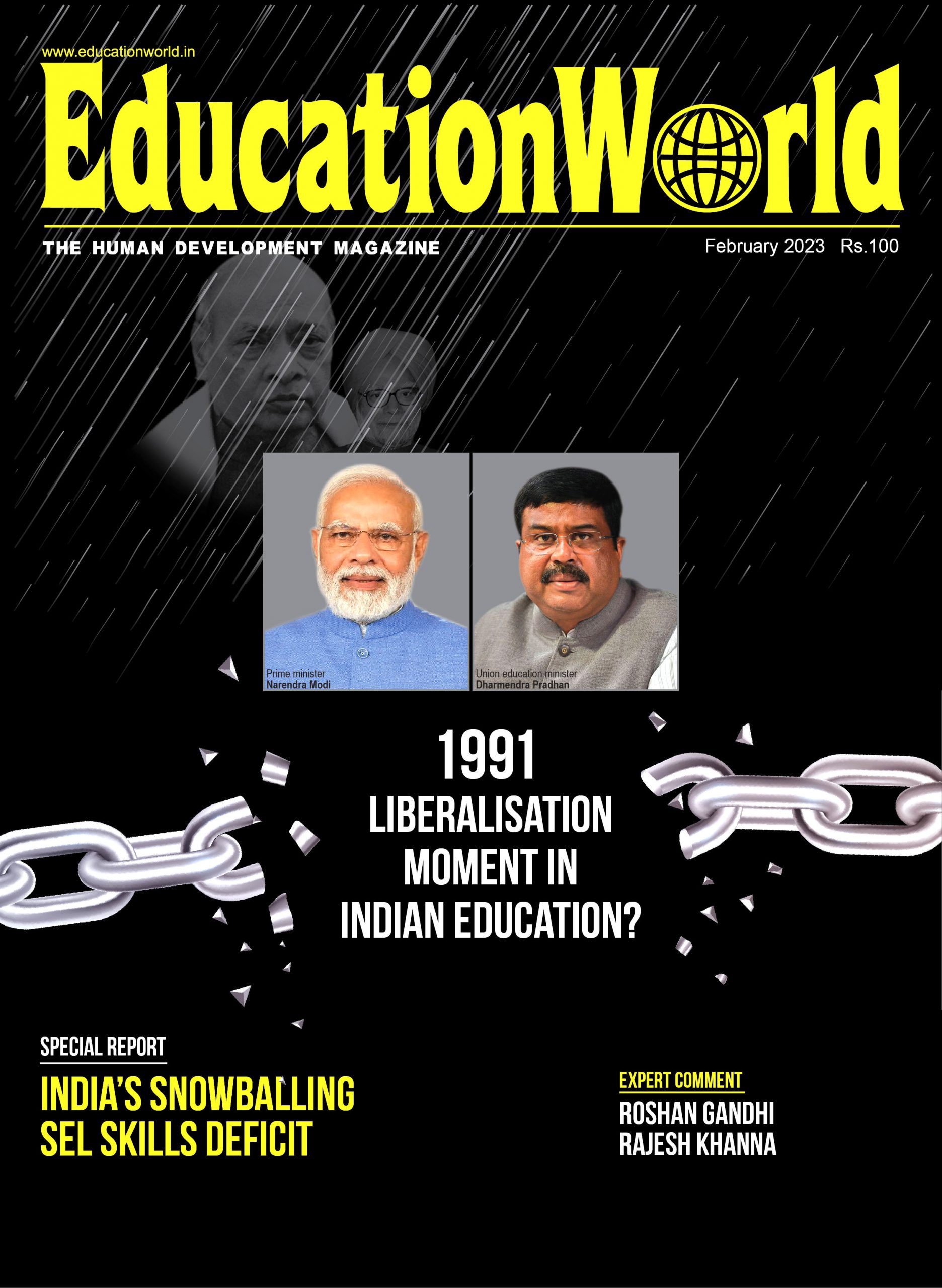Welcome guidelines
Congratulations for a brilliant cover story ‘1991 liberalisation moment in Indian education?’ and informative graphics on the recent big deals in K-12 education and foreign education majors in India (EW February).
Strong winds of change are indeed sweeping over Indian education. Samuel Fraser of ISC Research is right in his comment that “NEP 2020 is directing education in India towards key principles and strategies associated with internationally accepted teaching-learning norms”.
The recent UGC guideline outlining terms and conditions for foreign universities to establish campuses in India was overdue. I hope that they will spring up soon. They will be a great boon for students and the education ecosystem.
Anil Varma
Mumbai
Devise scholarship schemes
Your cover story (EW February) titled ‘1991 inflection point for Indian education’ is thought provoking. The green signal to foreign universities to set up campuses in India will certainly prove a game changer for Indian higher education. They will provide stiff competition and incentive for Indian colleges and universities to improve the quality of education they dispense.
I agree with Mohandas Pai that this is a turning point for Indian higher education. Now world-class education will be delivered to students at their doorstep, saving billions in foreign exchange outflow.
But foreign universities should heed his advice to devise scholarship schemes for deserving Indian students who may not be able to afford their high fees. Perhaps the government should make this a pre-condition of licensing them to set up campuses on Indian soil.
S.K. Chandrashekar
Mysuru
Unprecedented exposé
Your well-researched special report feature ‘India’s snowballing SEL skills deficit’ (EW February) is an unprecedented exposé of the failure of India’s government and best private schools to develop children’s social and emotional learning (SEL) skills.
I was shocked to read the findings of the Cognitive & Affective Skills (CASS) Study 2022, especially that almost 70 percent of students in private schools report peer and teacher abuse. Although one often hears of cases of students exhibiting aggressive behaviour in private schools, most of us don’t connect this with the neglect of SEL by school managements. Your detailed report is an eye opener and must be read by all teachers and parents.
Charu Srivastava
Delhi
Great contribution
Thanks for publishing the list of CENTA TPO 2021 winners (EW February). CENTA has done great service to Indian education by assessing and certifying teachers and principals — the backbone of our schools. Indian education needs a continuous supply of high-quality, well-trained teachers and education leaders ready and willing to keep abreast of latest curriculums and pedagogies. That’s CENTA’s contribution.
Venkatesh B.
Chennai
Careful design needed
I fully endorse the views of Prof. Rajesh Khanna in ‘Pandemic learning loss: myths and realities’ (EW February). As a teacher from a tier II city, I have witnessed that all children suffered learning loss during the Covid pandemic lockdown — but not equally.
For instance, my students who switched to online learning under supervision of parents and family elders, have suffered less learning loss than those living on the outskirts with limited access to the internet and family support.
This is why remedial programmes should be carefully designed bearing in mind the differences in extent of learning loss in local communities.
Vishnu Manohar
Nagpur
Time to move on!
The essay ‘Pandemic learning loss: myths and realities’ by Prof. Rajesh Khanna, president, NIIT University was excellent (EW February). There’s no denying that widespread learning loss is a reality after the prolonged lockdown of schools during the Covid pandemic.
But during the past year, most school managements have worked hard to provide students remedial programmes, bridge courses, and special classes. Schools have returned to normalcy. It’s time to move on.
Farha Sultana
Hyderabad